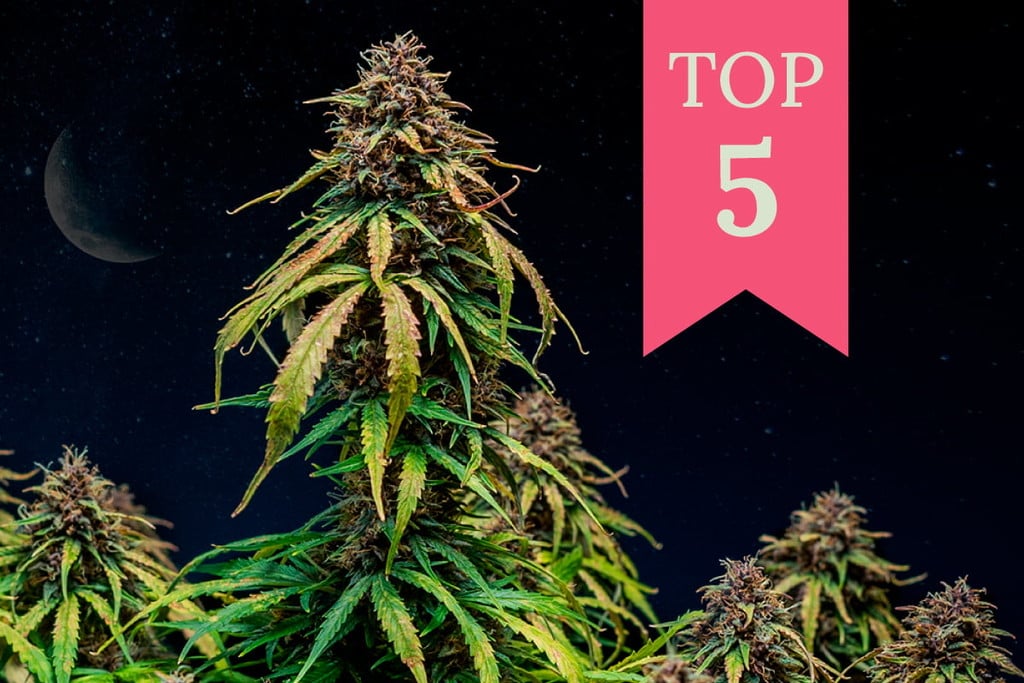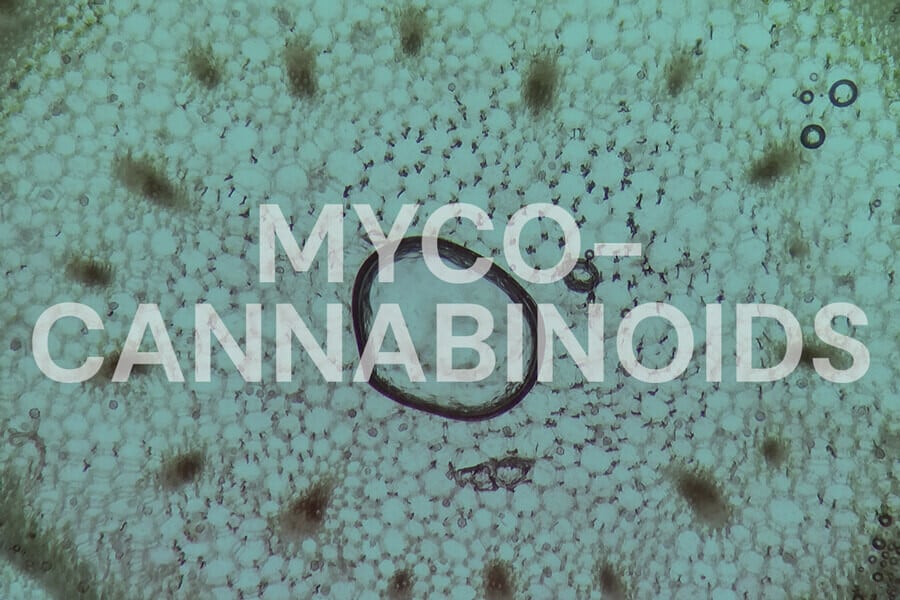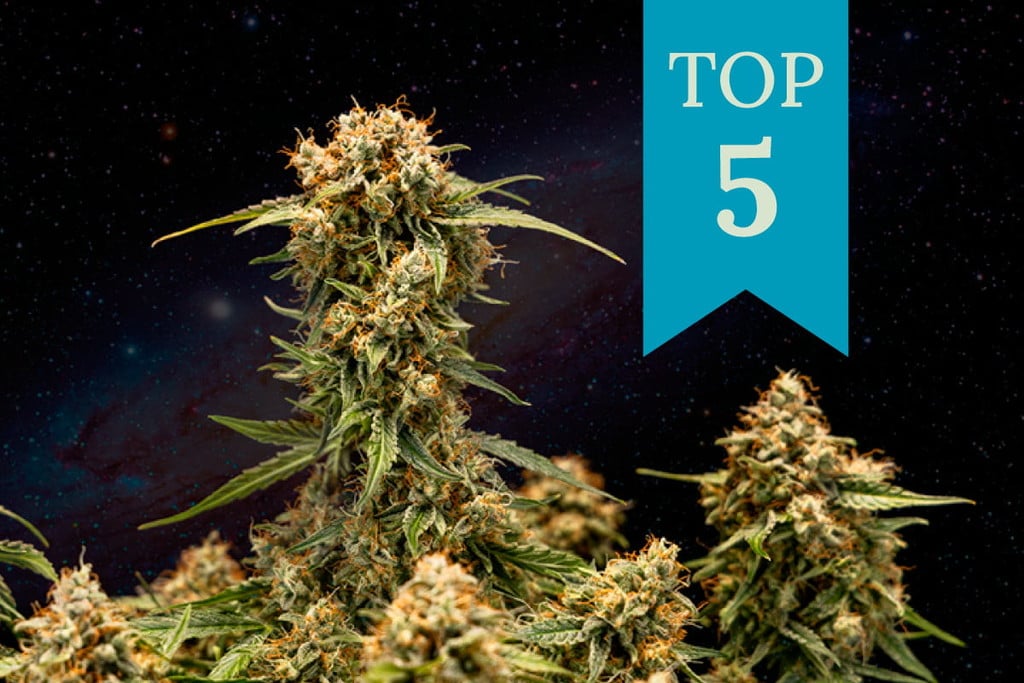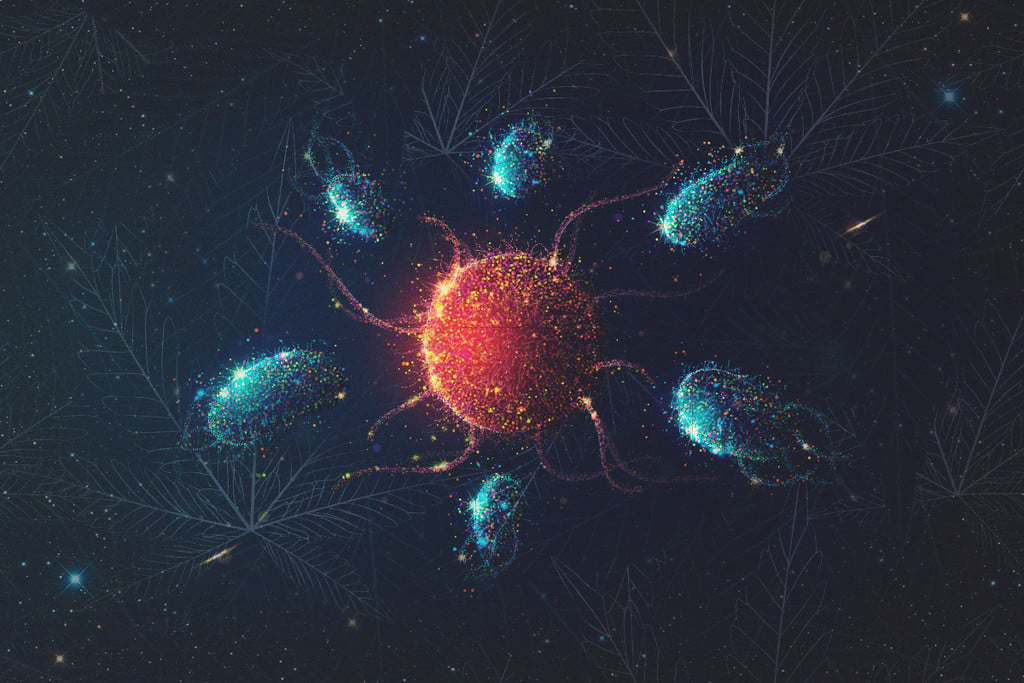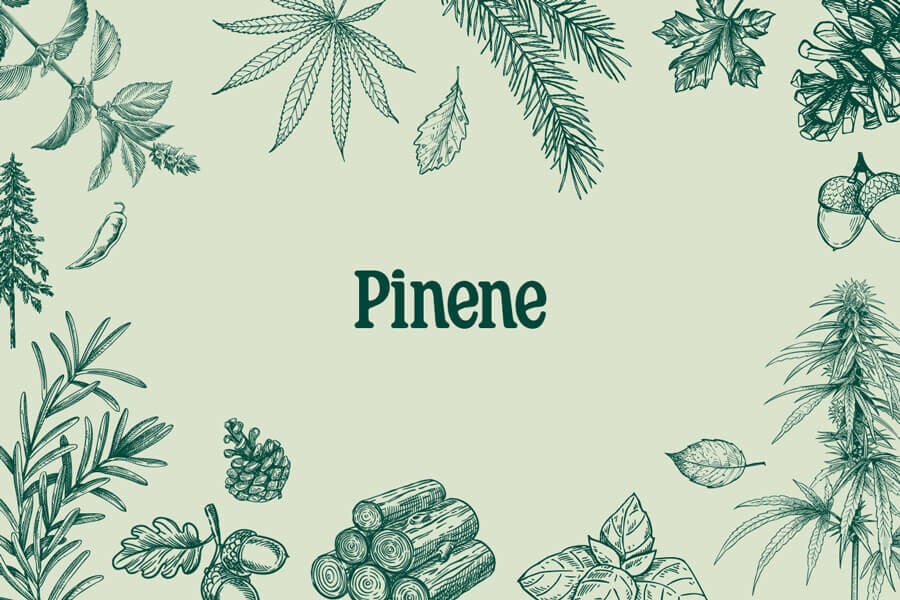.
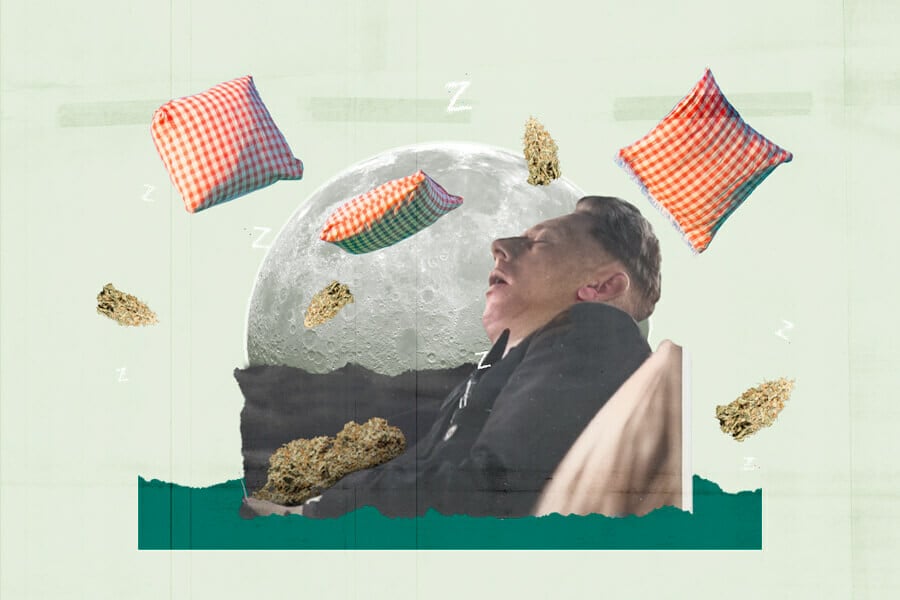
Cannabis & Sleep: Does the Herb Help or Hinder?
Cannabis often leaves users feeling stoned, blissful, and relaxed. Based on these effects, it stands to reason that the herb could help with getting a good night's sleep. But not every strain has the same effect, and the many chemicals found in weed paint a complex picture. Let's take a look at the science of weed and sleep.
Contents:
- The importance of a good night’s sleep
- Does weed help you sleep?
- Cannabinoids: are these compounds the key to delightful dozing?
- Could cannabis terpenes help your head hit the hay?
- How should you take cannabis for sleep?
- The drawbacks: how smoking weed can disrupt sleep
- Can cannabis cause sleep paralysis?
- Is weed good for sleep? we need more research
Do you often feel dreamy after smoking a joint? Have you ever asked: why does weed make me feel sleepy? Well, top cannabis scientists are currently trying to figure out the answer to this question. Some users say they simply can’t sleep without weed, whereas others have no luck trying to go to sleep high. Below, we dive into the available science to get to the bottom of the herb’s effect on sleep. Let’s get into it!
The Importance of a Good Night’s Sleep
Sleep plays a fundamental role in human health. Placing your head against the pillow each night does far more than simply rest your muscles. Science has recently discovered the presence of the glymphatic system[1] in the brain—a macroscopic waste clearance system that kicks in while we sleep, which flushes cellular debris from the central nervous system. On top of this, it also acts as a brain-wide distribution network that nourishes our cells with glucose, fat, growth factors, and amino acids. Aside from helping us consolidate memories, improving our focus, lowering stress, and improving immune function, getting adequate sleep also rhythmically flushes the brain of toxins and bathes it in nutrients, helping to lower the risks of chronic neurological health problems.
Realising the true benefits of sleep makes contemporary sleep statistics all the more concerning. Around one-third[2] of adults sleep less than seven hours per night, and 10–15% experience chronic insomnia. Failing to achieve the recommended 7–9 hours of sleep per night not only leaves us feeling tired and stressed, but it can directly impact brain health over time.
People turn to all sorts of solutions when looking to improve their sleep, from lifestyle changes such as diet and exercise to pharmaceutical drugs. However, some people are placing their hope in cannabis as a means of getting better sleep. But does the herb help or hinder? Let's discover what the science says.
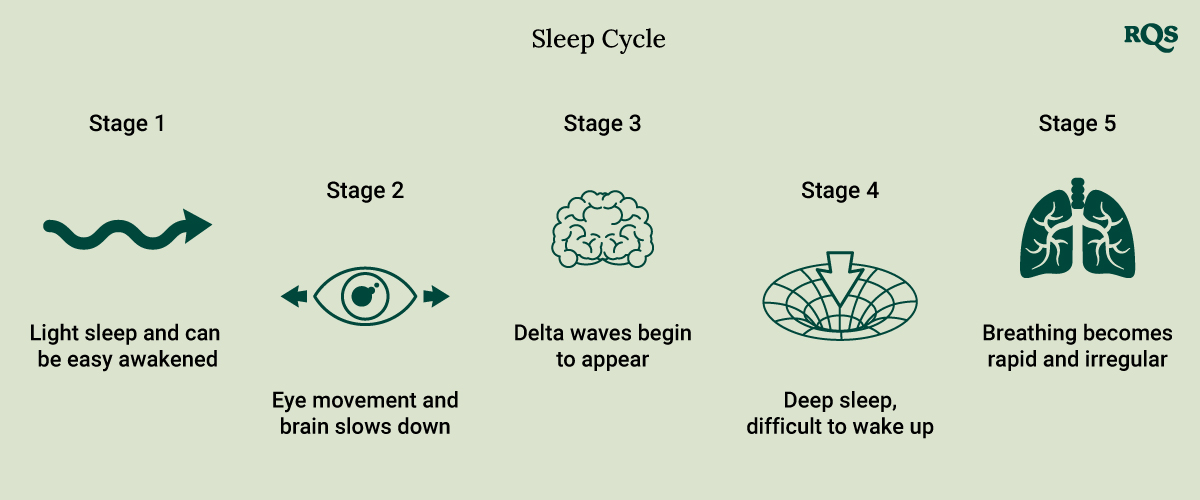
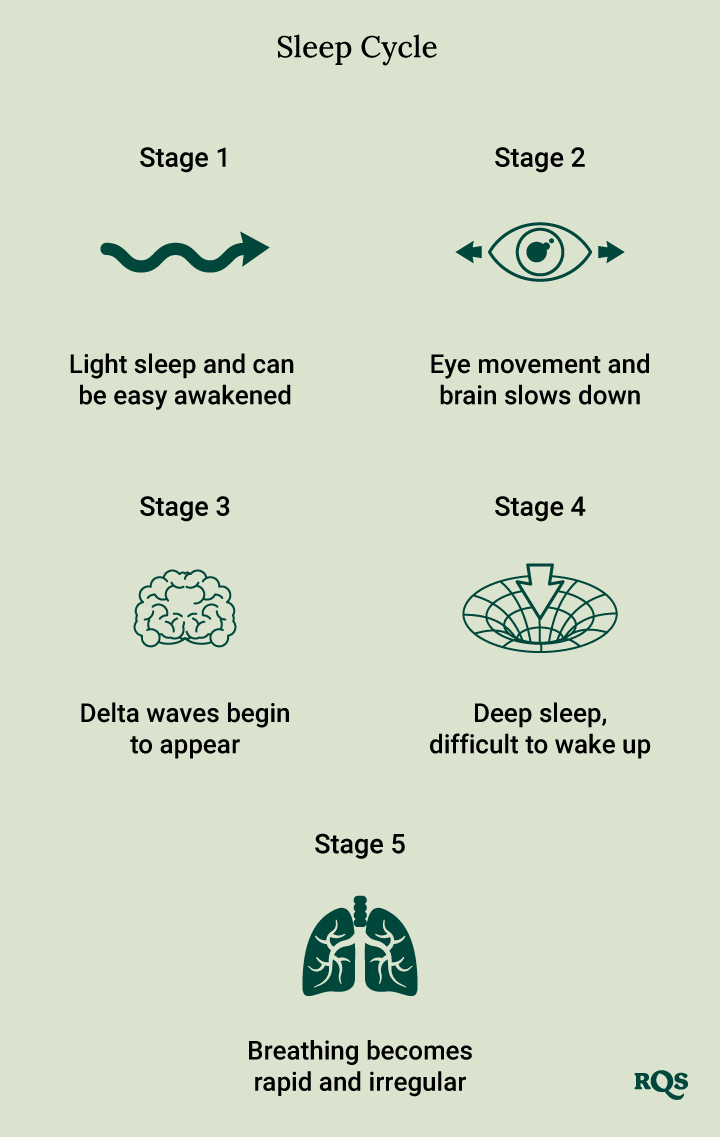
Does Weed Help You Sleep?
Cannabis has certainly gained a reputation for helping people to relax. The right strain will leave you feeling stoned, cosy, and ready to hit the hay. Many cannabis users also anecdotally report that smoking a joint before bed drastically improves their slumber game. But does science support this position? Or is it all in their heads?
While the research on cannabis for sleep remains early and inconclusive, emerging evidence suggests that cannabis could play a role in unlocking better sleep. Certain compounds found in cannabis interact with the human endocannabinoid system, a body-wide network responsible for keeping many physiological systems in a state of balance. THC, the principal psychoactive ingredient found in cannabis, activates the CB1 receptor of the endocannabinoid system. Found in sleep-linked brain areas[3] such as the pons and basal forebrain, this receptor plays a role in sleep induction and the regulation of sleep stages.
But that’s only part of the picture when it comes to sleep and cannabis. There is more to understand about the chemical components in cannabis and how they might specifically impact sleep.
Cannabinoids: Are These Compounds the Key to Delightful Dozing?
Cannabinoids are a diverse class of chemical constituents found in cannabis flowers and other plant and fungal species. Weed plants produce over 100 of these molecules, with THC and CBD occurring as the most predominant in the majority of strains. Some of these compounds directly activate the endocannabinoid system, whereas others influence this signalling network through indirect mechanisms. Find out how they could impact sleep below.
What happens when you sleep high on THC: Sleep Onset & Sleep Apnea
THC underpins the cannabis high and binds to both the CB1 and CB2 receptors of the endocannabinoid system. A scientific review[4] published in Dovepress looked at the available evidence regarding THC and related compounds in the context of several sleep parameters and conditions. The authors document limited research that suggests THC led to a reduction of insomnia symptoms compared to placebo in a human trial consisting of nine participants. While the report shows that no studies found THC to improve sleep onset, one finding suggests that the compound might reduce wake times after sleep onset occurred.
Another documented study shows that dronabinol, a synthetic version of THC, led to a reduction of sleep apnea symptoms in human trials. But can cannabis help sleep apnea? Despite these findings, the authors concluded: “Currently, there is insufficient evidence to support the routine use of medicinal cannabis as an effective and safe treatment option for any sleep disorder. Nevertheless, emerging evidence is promising and warrants further investigation…”.
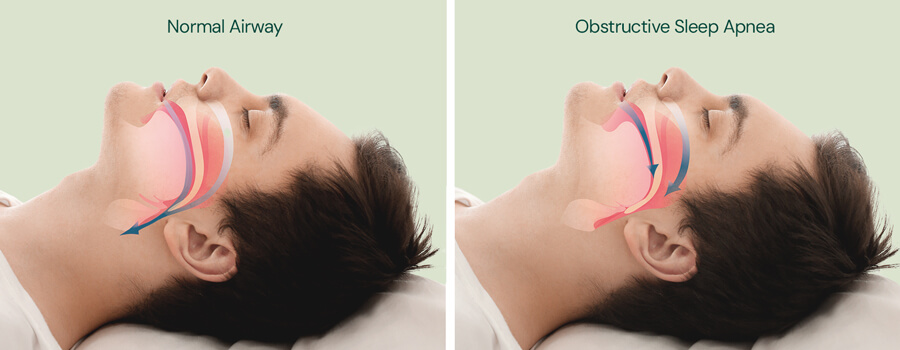
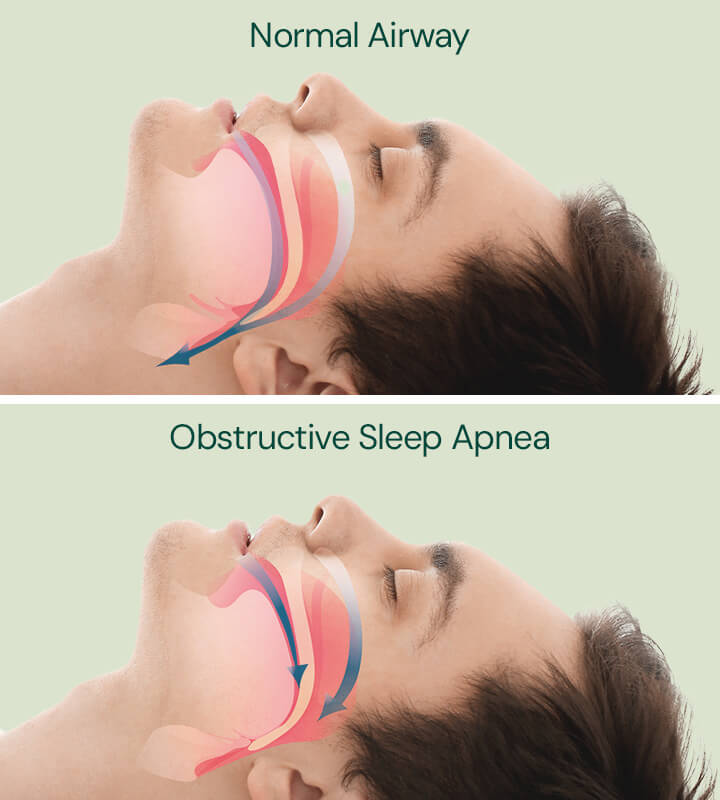
CBD & PTSD
While CBD doesn’t directly bind to the two primary endocannabinoid receptors in the same way THC does, the cannabinoid influences the system indirectly by increasing the levels of endocannabinoids—compounds produced by the body that serve as signalling molecules of the endocannabinoid system. Several researchers have focused their efforts on the effects of CBD in post-traumatic stress disorder (PTSD), a mental health condition known to disrupt healthy sleep.
Characterised by a consistent state of arousal and alertness following a traumatic event, PTSD is linked[5] to insomnia, nightmares and night terrors, and obstructive sleep apnea. A daily diary study[6] published in the Journal of Anxiety Disorders in 2022 tracked the self-reported effects of cannabis on the sleep of 77 PTSD patients over a two-week period. The researchers found that products higher in CBD were associated with fewer early awakenings, and cannabis products as a whole were associated with a lower chance of experiencing nightmares. The team concluded, “Cannabis and its constituent parts, THC and CBD, interact with the endocannabinoid system and sleep regulation in important ways. This may be the mechanism by which MC [medical cannabis] is related to improvements in both nighttime and daytime PTSD symptoms”.
Could Cannabis Terpenes Help Your Head Hit the Hay?
Cannabinoids are not the only cannabis-derived compounds of interest. Marijuana also produces over 150 aromatic terpenes that contribute to the flavours, aromas, and effects of each strain. These molecules are thought to synergise with cannabinoids in a phenomenon known as the entourage effect, and they’re likely to play an important role in finding out the answer to the question: does cannabis make you sleepy? Check out the research on some of the most dominant terpenes found in cannabis below.
Myrcene: A Relaxing Compound
Myrcene contributes a relaxing effect to many cannabis strains, alongside flavours of fruit and musk. But does this terpene play an important role when it comes to weed and sleep? A study[7] published in the journal Phytomedicine found the compound, along with other terpenes, to produce a relaxing effect and boost the effectiveness of sleep medication when administered to mice. The research concluded that citral, limonene, and myrcene exhibited soporific and motor relaxant effects.
Pinene: A Refreshing Forest Terpene
Pinene contributes flavours of pine to select cannabis strains and also makes for a clear-headed high. But does it come into play when you decide to sleep high? A study[8] published in Molecular Pharmacology administered the terpene to mice and observed their non-rapid eye movement sleep (NREMS) by monitoring the electrical activity of their brains. They found pinene to enhance the quantity of NREMS by working on GABA receptors in the brain.
Caryophyllene: A Physically Soothing Phytochemical
Caryophyllene, both a cannabinoid and a terpene, binds to the CB2 receptors and adds hints of spice and pepper to certain weed strains. Aside from its role in the flavour and aroma of cannabis, this terpene could contribute to the relationship between cannabis and sleep. A study[9] conducted at Universidade Federal de Santa Catarina, Brazil tested the anti-anxiety and sleep-inducing effects of caryophyllene in mice. They found the terpene to reduce anxious behaviour while also decreasing sleep onset time.
How Should You Take Cannabis for Sleep?
When it comes to using cannabis for sleep, there are a range of options at your disposal. From vaping and smoking to edibles, check out the most common methods of consumption below.
- Smoking & Vaping
- When attempting to use cannabis as a sleep aid, smoking and vaping provide a fast-acting and simple option. Inhalation offers an easy way to control dosing, and it results in a quick onset of effects. However, throat irritation and coughing could make it harder to fall asleep initially. You’re also probably wondering about the best strain for sleep. Well, look for options high in the terpenes mentioned above, and try to avoid varieties high in energising terpenes such as limonene.
- Edibles
- Edibles for sleep are more complex than smoking, as they take much longer to produce an effect and trigger a much more potent and longer-lasting high. While they won’t cause throat irritation, users will need to take edibles around 1–2 hours before hitting the hay. Beginner cannabis users are advised to skip this option, as the intensity of the high can disrupt sleep. Edibles can also cause users to sleep high and wake up high, so prepare for some possible drowsiness in the morning.
- Sublingual
- Sublingual application involves placing drops of oil or extracts under the tongue, bypassing both the lungs and digestive tract. This option results in a rapid onset of effects and causes no throat irritation, making it the best option for many users when it comes to cannabis and sleep.
The Drawbacks: How Smoking Weed Can Disrupt Sleep
While some users find cannabis helpful before bed, others experience negative side effects.
THC May Impact REM Sleep
Sleep occurs in cycles of deep sleep and REM sleep. Research[10] shows that THC might suppress important REM sleep following acute use. Additional evidence suggests that, while some users might build a tolerance to this effect in the long term, it could still disrupt sleep in others over time.
Withdrawal Symptoms and Sleep Disturbances
Using cannabis frequently, and then suddenly stopping, can cause withdrawal symptoms that disturb sleep. These symptoms include headaches, irritability, insomnia, chills, and stomach problems—all of which can keep you awake at night.
Variables & Unpredictable Effects
All cannabis strains, and even plants of the same strain, differ slightly in their chemical components. Some cultivars will make you feel relaxed and ready for bed, whereas others will make you energised and keep you awake. Take some time to find the strains that work for you, and exclude those that don’t.
Can Cannabis Cause Sleep Paralysis?
A strange and disturbing phenomenon, sleep paralysis[11] occurs when a person becomes conscious, but muscle atonia (a process that stops the body from moving during dreaming) continues. This results in a person waking up completely unable to move, often causing feelings of panic sometimes accompanied by visual hallucinations. The evidence remains very limited as to whether cannabis causes or could help sleep paralysis. However, some researchers hypothesise that the ability of THC to suppress REM sleep could make it a promising candidate[12] for combating sleep paralysis.
Is Weed Good For Sleep? We Need More Research
Does THC help with sleep? Or weed as a whole, for that matter? Right now, we simply don’t know. Despite strong anecdotal evidence, human trials remain few and far between. With the diversity of effects caused by different cannabis strains, many variables need ironing out. The conclusion from a 2022 review on cannabis and sleep disorders sums up the state of affairs best: “There is currently insufficient evidence to support the clinical use of any cannabinoids as a safe and effective routine treatment for any sleep disorder. However, encouraging outcomes from recent studies in relation to some disorders indicates that the pursuit of elucidating the potential role of cannabinoids for the treatment of sleep disorders is warranted”.
- The Glymphatic System: A Beginner’s Guide | Neurochemical Research https://link.springer.com
- 100+ Sleep Statistics https://www.sleepfoundation.org
- Cannabinoids, Endocannabinoids and Sleep - PMC https://www.ncbi.nlm.nih.gov
- Medical cannabis in treating patients with sleep disorders | NSS https://www.dovepress.com
- PTSD and Sleep https://www.sleepfoundation.org
- Posttraumatic stress disorder, sleep and medical cannabis treatment: A daily diary study https://www.sciencedirect.com
- Central effects of citral, myrcene and limonene https://pubmed.ncbi.nlm.nih.gov
- α-Pinene, a Major Constituent of Pine Tree Oils https://www.researchgate.net
- The anxiolytic-like effect of an essential oil derived from Spiranthera odoratissima https://core.ac.uk
- Effects of Cannabinoids on Sleep and their Therapeutic Potential for Sleep Disorders - PMC https://www.ncbi.nlm.nih.gov
- Sleep Paralysis - StatPearls - NCBI Bookshelf https://www.ncbi.nlm.nih.gov
- Medical cannabis in treating patients with sleep disorders | NSS https://www.dovepress.com


























